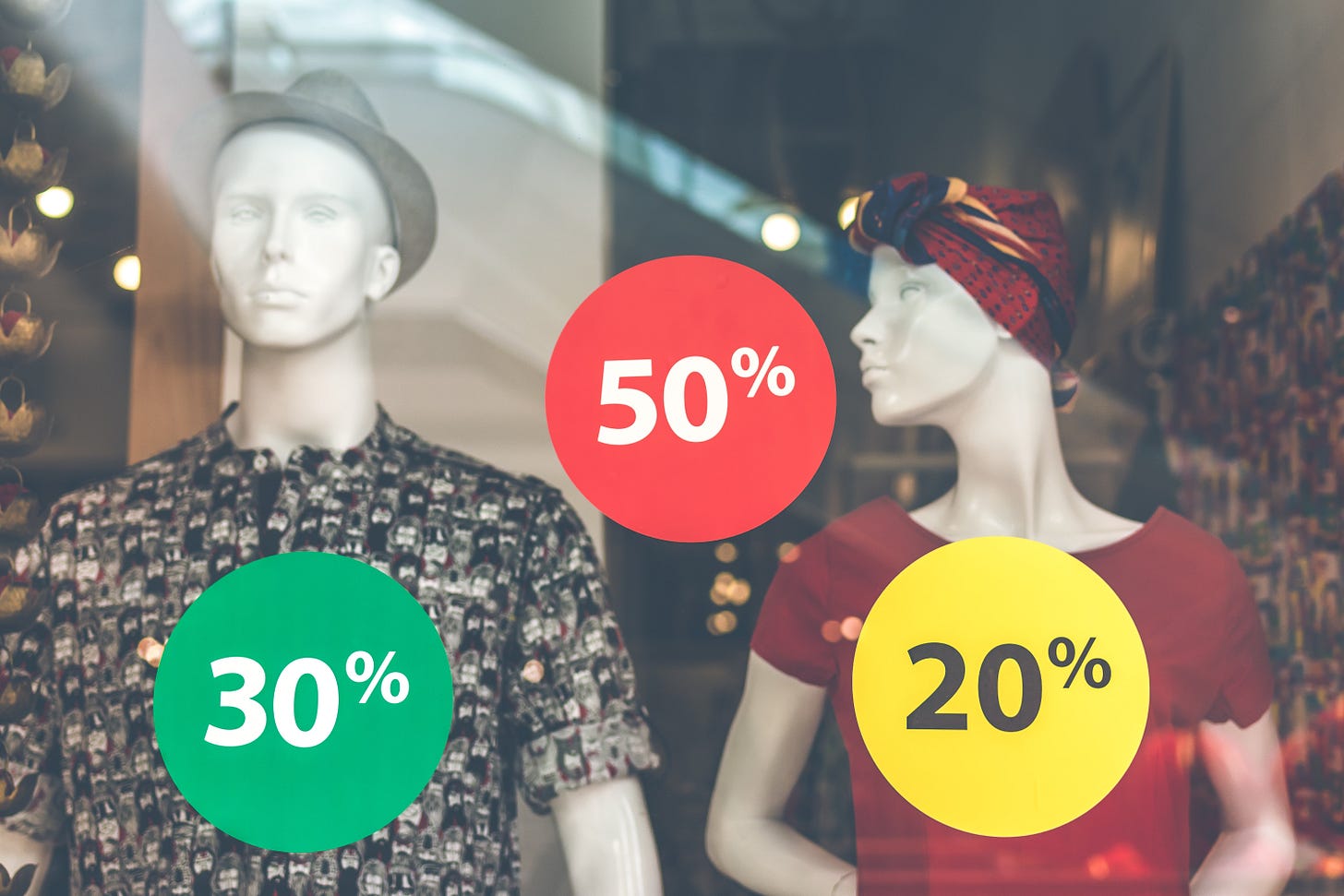Deceptive Discounting: are we witnessing the death of Black Friday?
As Black Friday 2023 comes to an end, experts' trend analysis calls into question how successful the phenomenon will continue to be.
Photo By: Unsplash.com
Black Friday has been one of retail's most anticipated events. Mintel, a global market intelligence and research agency, says that despite financial concerns 49% of consumers bought at least one item in the 2022 sales. However, in 2023 there appears to be growing scepticism surrounding the ‘deals’ Black Friday offers, especially as many UK shoppers are feeling the pressures of inflation.
Growing concerns surrounding Black Friday deals have been sparked by numerous articles regarding the false pricing of items during the event. An article from Sky News detailed concerning figures from Which?, whose research claims 86% of promotions were cheaper or the same price in the six months before the sales.
Magazine Editor for Which?, made a comment urging caution and research diligence for Black Friday shoppers:
“… while there are a small number of deals around on Black Friday and if you do your research, it is possible to find those. The vast majority aren’t worth getting excited about…”
The Washington Post also reported on multiple class action lawsuits happening in America against companies such as J.C Penny and Footlocker. The lawsuits allege J.C Penny used “false pricing schemes” and Footlocker created false urgency over products.
Have these exposed marketing strategies created a cynical culture around Black Friday sales?
According to the Office for National Statistics, while the ‘Value’, meaning the total amount spent over Black Friday, earned by retail sales in November 2022 remained fairly sustained, the ‘Volume’ or ‘quantity sold’ has dropped dramatically. Suggesting that the ‘deals’ offered by Black Friday may not have been as much of a bargain as believed.
Throughout this period, we can also see the effect of the COVID-19 pandemic on Black Friday.
We can see how ‘Value’ increased, which makes it apparent that these were either much more high-ticket items or Black Friday popularity has plummeted. Whilst there is no direct and immediate correlation between the Pandemic and Black Friday’s success, the Pandemic’s contribution towards current inflation rates may also explain the dramatic decrease in Black Friday sales.
ONS data shows the increase in inflation rates since 2019, which usually correlates with a significant impact on consumers’ shopping habits, coupled with the scepticism around Black Friday deals, shoppers have become far more cautious in their bargain hunting. According to Mintel, 56% of shoppers agreed that they were disappointed with 2022 Black Friday deals.
In light of shoppers feeling the need to tighten their purse strings, many are turning to price-checking software and websites to reveal true bargains on Black Friday.
A Newsweek article featured a 44-year-old Amazon customer, Louis Torres, who utilised Keepa, a browser extension that gives shoppers insight into past price history of products on the website.
"My wife needed a new display TV for her office, I could've bought this for her birthday in October," Torres was looking at the price history chart of a 75-inch Toshiba Fire TV.
According to Newsweek, the Black Friday deal showed a drop to $499.99 from $799.99, but the chart revealed that it was priced at $499.99 at the start of October, only to be hiked up to $799.99 mid-month and then reduced again to $499.99 just before the sale.
There are plenty of examples of such price inflation being utilised to show dramatic sale prices come Black Friday. Jie Zhang, a professor of marketing at the University of Maryland, said:
“ [They] mark up the prices and then offer seemingly deep discounts to make the deals look more attractive. This is a form of deceptive pricing.”
Despite the increased exposure and due diligence surrounding Black Friday sales, Black Friday’s success continues to prevail only seemingly paying the price due to inflation rates.
Retailers and Black Friday alike also share the obstacle of shoppers buying based on brand values, a trend spotted increasingly over the past several years. The Financial Times reported on Edelman’s Earned Brand survey in 2017, stating that 30% of the 14,000 respondents over 14 countries said “they are buying or boycotting based on values more than they were three years ago.”
Business Leader interviewed Suffolk-based coffee company Paddy & Scott’s CEO, Jonathan Reed.
“We find Black Friday to be a highly charged frenzy designed to encourage consumers to spend money they don’t have on consuming stuff they probably don’t need, or want.”
He continued: “At a time when countless people around the UK are struggling to pay their bills, this period of online supermarket sweep doesn’t really connect with our moral compass. Nor does the trend of pushing up prices, only to apply false discounts for the duration of Black Friday weekend.”
The company, instead of participating in Black Friday discounts, pledged that for all purchases over Black Friday, they would donate 10 school meals to children in coffee-growing regions.
It seems that despite the increased awareness of false deals come Black Friday, the phenomenon’s biggest competitor remains consumer attitudes and financial security. Marc Pettican, the head of Barclaycard Payments, told the Guardian that Black Friday 2022 was heavily impacted by the football World Cup as well as fears surrounding Royal Mail strikes, impacting both in-store and online sales.
He continued: “Spending growth continues to lag behind inflation, as value-seeking consumers hunt for bargains. This could either be a sign that cost of living pressures will make cautious consumers reluctant to part with their cash, or could signify that shoppers have been holding out for discounts, boosting the demand for deals. Naturally, retailers will be hopeful for the latter.”
So, is the phenomenon one we see continuing to thrive? Or will savvy consumers best marketing giants?






